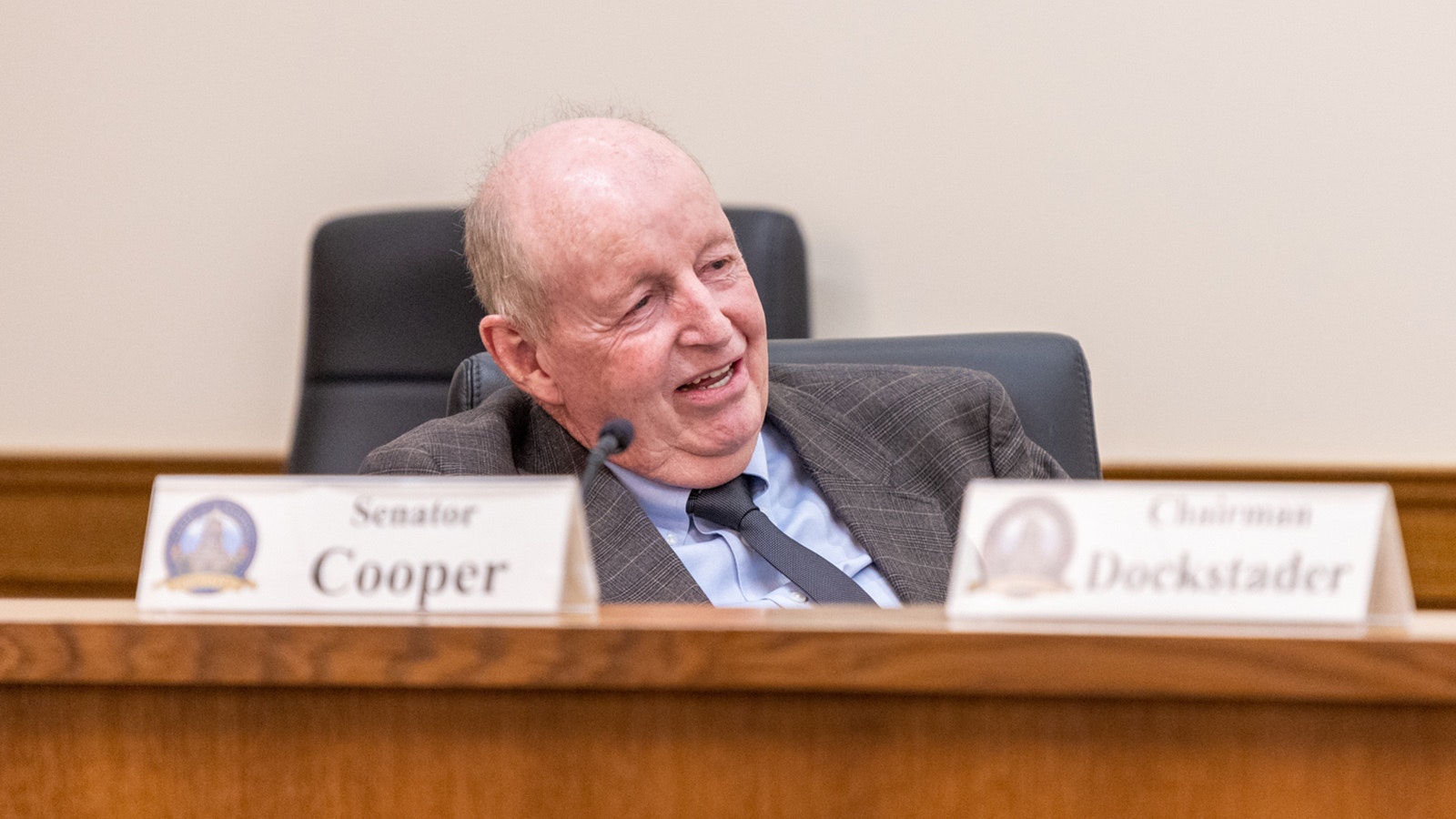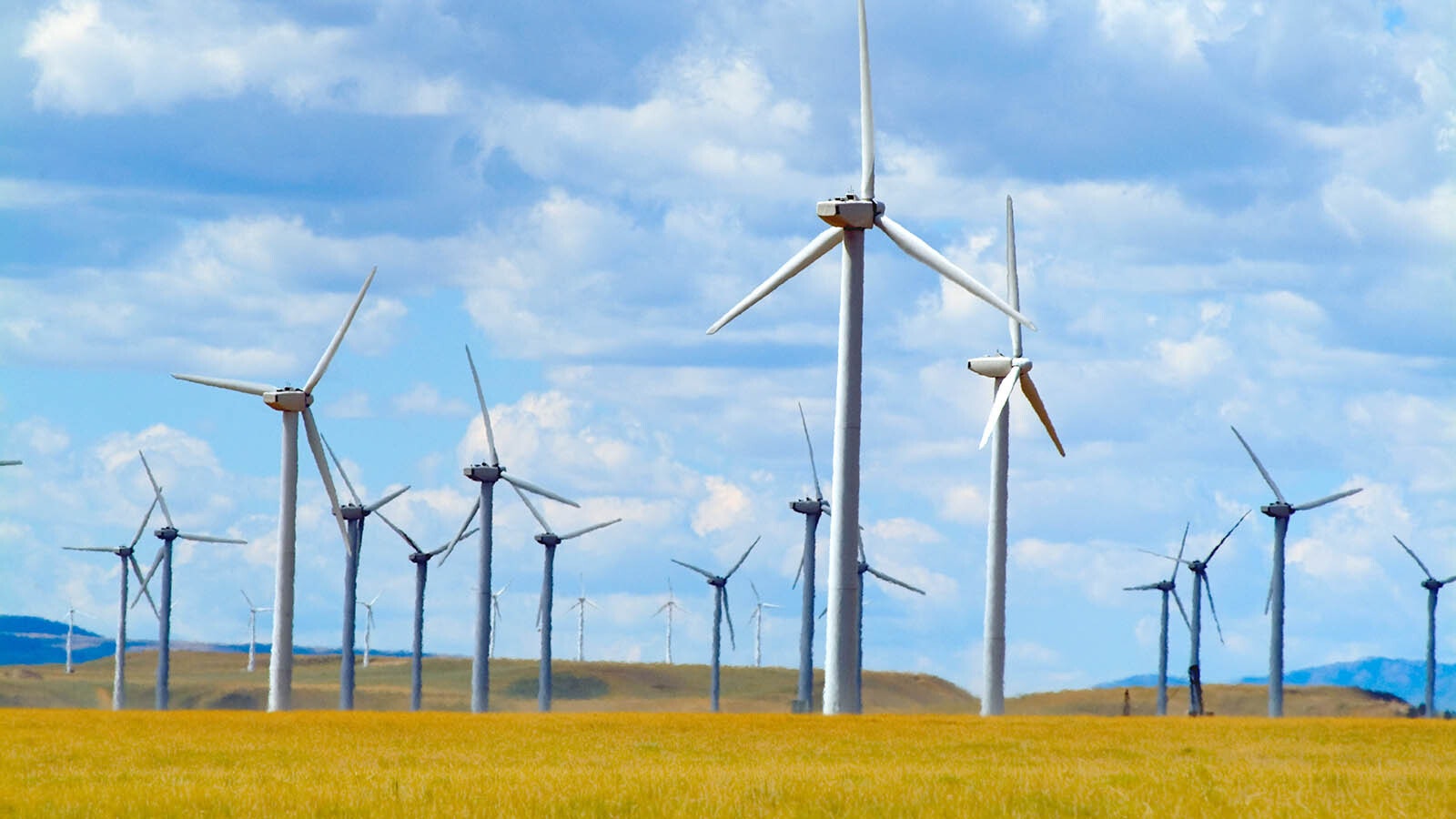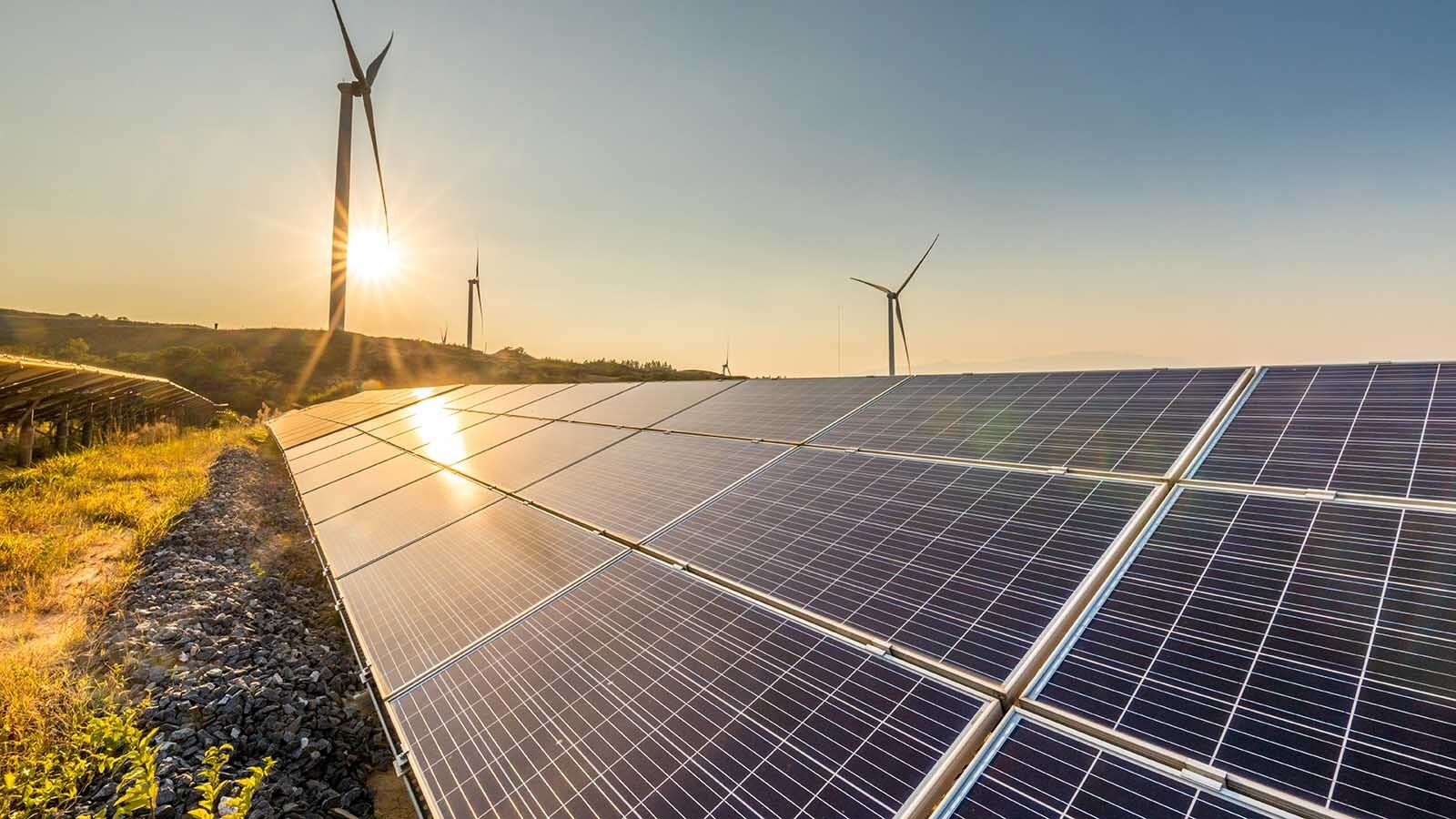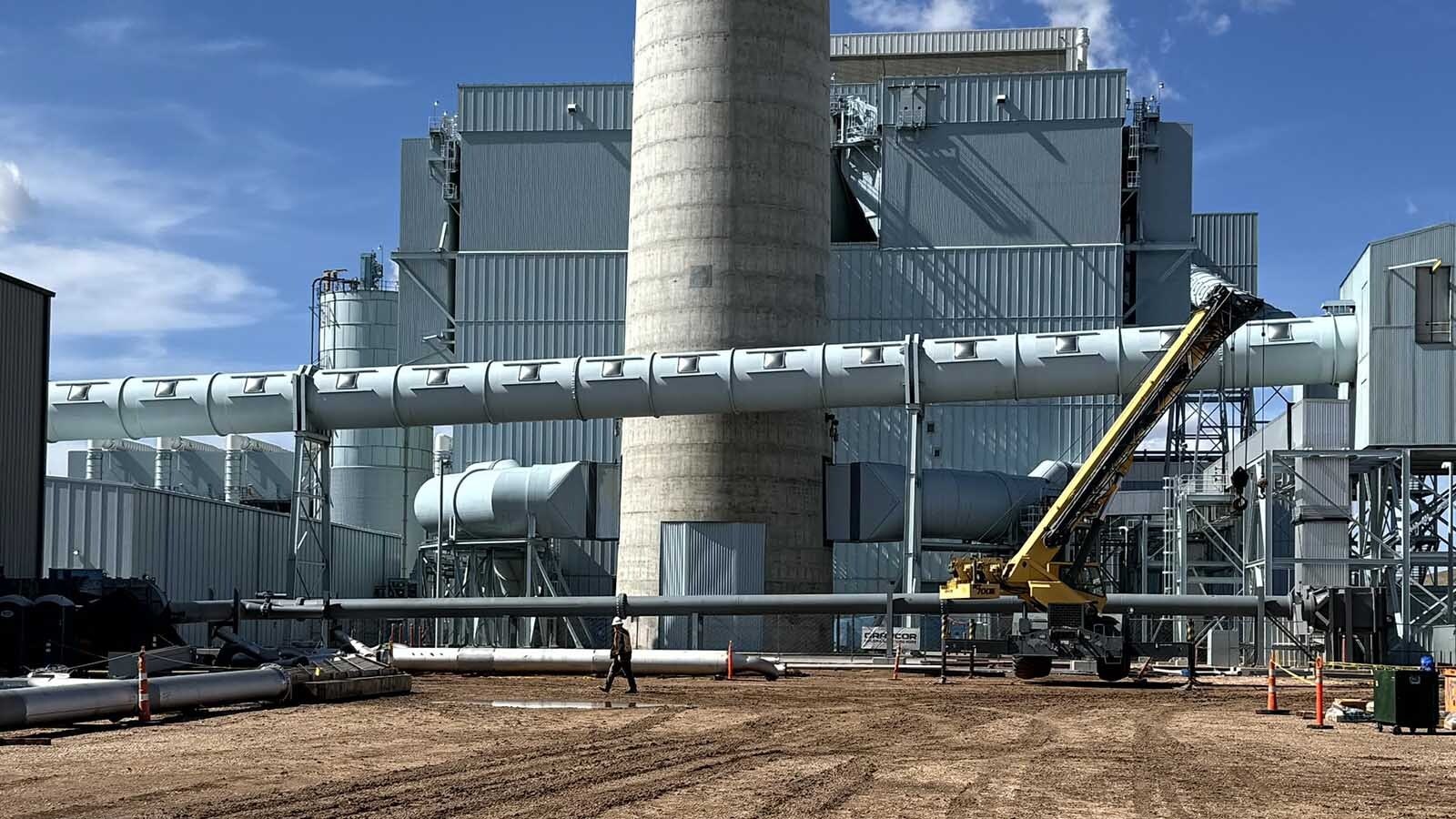A Wyoming Senate resolution to phase out electric vehicles in Wyoming has died.
If it had passed the full Legislature, Senate Joint Resolution 4 would have made it a goal that the sale of new electric vehicles (EV) in the state be phased out by 2035.
It requested that Wyoming industries and residents voluntarily limit their sales and purchases of new EVs.
It failed to gain traction with the Senate Minerals, Business and Economic Development Committee meeting Monday, but not without some debate.
Voluntary Compliance
The resolution was not a bill and, had it advanced all the way to becoming law, wouldn’t have had the force of a ban.
Its sponsors have said the main purpose was to make a statement against states like California and New York, which are similarly banning the sale of gas-powered cars.
“We didn’t want to make a bill that would say that the dealerships have to really quit selling vehicles,” said Sen. Jim Anderson, R-Casper, the resolution’s sponsor. “We just wanted to make a statement that there is a counter to stopping selling gas vehicles in other states.”
While the resolution wouldn’t have the force of law behind it, it still sparked some spirited testimony against it from representatives of Wyoming’s automotive dealerships and the Wyoming Outdoor Council.
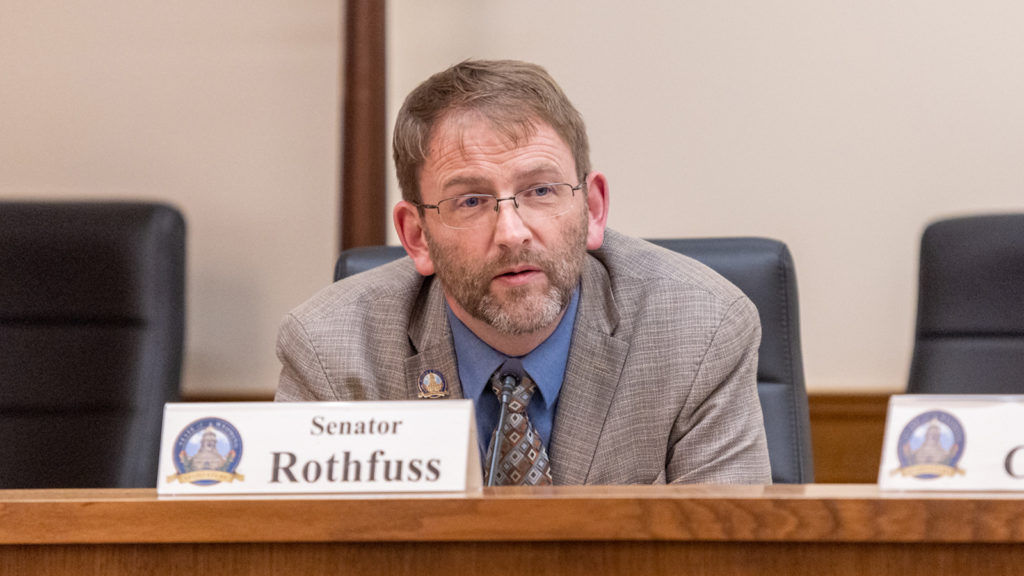
Ignores Benefits
Sen. Chris Rothfuss, D-Laramie, challenged the concern raised by some committee members that the adoption of EVs is a threat to Wyoming industries, including coal, oil and gas.
They still require energy, he said, which will be a challenge as EV use continues to grow.
“It’s exactly the type of challenge that Wyoming stands to benefit from, because we produce all types of power,” Rothfuss said.
The vehicles also require lithium and rare earth minerals, of which Wyoming has large deposits.
Speaking after the committee meeting, Rothfuss told Cowboy State Daily that there’s an opportunity with EVs that the resolution failed to grasp.
“We’re looking for our opportunities, because we have traditionally been one of the top five energy-producing states,” Rothfuss said.
Risks And Hazards
Anderson introduced the resolution to the Senate Minerals, Business and Economic Development Committee, explaining that SJ 4 was intended to support Wyoming’s oil and gas industries, which he said are under attack from states that move to outright ban the sale of new gas-powered vehicles.
“Our oil and gas industries are huge for Wyoming – and for that matter, every state in the West,” Anderson said.
He said that electric vehicles pose a hazardous waste risk, as the batteries are difficult to recycle and dispose of. The state also has a lack of charging infrastructure to support them.
“My friends that have electric vehicles are having trouble with charging stations. They do not have enough charging stations in Wyoming,” Anderson said.
Dealership Response
Marsha Allen, executive vice president of the Wyoming Dealers Association, testified against the bill, saying that its message is “extremely concerning.”
“We fully understand the frustrations toward mandates, actions that are taken by other states and even the federal level that trickle down to policy in Wyoming. We do not support those,” Allen said.
However, dealerships across Wyoming sign sales and service agreements with manufacturers, she said. These require dealerships to invest in charging stations, training and tools.
The resolution would put dealers in direct conflict with their manufacturers’ sales and service agreements, Allen said.
As an example, Allen referenced Cadillac, which plans to produce only electric vehicles between 2025 and 2030. For dealers to keep selling the brand, they would need to make a minimum investment of $250,000 in infrastructure for charging stations and stronger lifts, as EVs are heavier than conventional vehicles.
She said she spoke to one dealership in Wyoming that is spending more than $500,000 to meet the manufacturer’s requirements.
Allen said that even though SJ 4 was just a resolution meant as a statement, even making that statement would negatively impact dealerships in Wyoming. Besides asking them to violate agreements with manufacturers, it encourages people not to buy EVs from them.
“Casual statements can cause real harm,” Allen warned.
Freedom To Choose
Keith Rittle, representing the Wyoming Outdoor Council, said that the challenges of the transition to EVs are manageable, and he argued there are benefits that EV adoption would bring to Wyoming and its existing industries.
Rittle said that EV ownership comes with lower costs over the lifetime of the vehicle. They have “severe acceleration and handling” and the convenience of charging at home.
He also said that their batteries could act as energy storage capacity to power homes during grid disruptions.
The resolution, Rittle added, seemed at odds with other interests in the state, such as the electrical generation industry, which is powered by Wyoming’s mining industries.
Rittle requested the committee reject the resolution in the interest of individual choice.
“It’s best if … Wyoming citizens retain freedom to choose for themselves, like the vehicles they prefer to drive,” Rittle said.
Frozen Batteries
Bill Winney, a former Navy submarine captain and resident of Bondurant, spoke of the degradation in range EV batteries experience in cold weather.
“You should think of somebody going around Elk Mountain in February when it’s minus 20 or 30,” Winney said.
With gas-powered cars, the heat for the cab and defroster is waste heat, he said, whereas with an EV, it comes out of the battery, further reducing its range.
Winney suggested it would be practical for the Legislature to explore the options of closing roads to EVs during winter months, just as they close roads to high-profile vehicles during high winds.
“You need to think in terms of a family that may be moving from Florida to California in February, going around Elk Mountain, and they just don’t understand how to manage loads on their battery,” he said.
Better Methods?
Speaking after the meeting, Rothfuss said there are better ways to push back against EV mandates that are spreading across the country without negative messaging and “fighting acrimony with acrimony.”
“I think over the past decade we’ve seen that adding more negativity to a challenging problem just doesn’t seem to lead to positive outcomes,” Rothfuss said.
Rothfuss suggested a delegation from Wyoming could open a dialogue with legislators in California to explain that Wyoming education has benefited greatly from the industries that their laws seek to eliminate.
“Those are the kind of conversations that we could have, if we were willing to sit down together instead of just lobbing grenades over the wall,” Rothfuss said.
Sent A Message
While the resolution died for lack of a motion, Anderson said the goal of starting a conversation with the statement it made has been achieved.
“It’s all over the nation now. Two major news outlets have asked me to interview this afternoon and tonight about 2 a.m.,” Anderson said. “So yes, we’ve got done what we needed to get done in informing the nation we’re supporting our industries.”
Sen. Ed Cooper, a supporter of the resolution, said he was fine with letting the bill die because it started a conversation that needed to happen.
He referenced the oath of office he took when he was sworn in as a member of the Wyoming Legislature to protect the state of against all enemies — foreign and domestic.
Phasing out gasoline-powered vehicles, he said, is a direct attack on Wyoming.
“When I see states making an open assault on the people of Wyoming, our industries and our way of life and livelihoods, I will push back,” Cooper said.
“If they take pot shots at us, I’m going to push back,” he added.
Cooper said he was OK with dropping it.
“It’s promoted a lot of discussion,” he said. “I think that was the purpose of it and maybe here is where it ends.”

